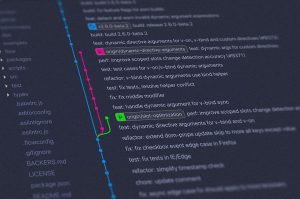How does an AI writer handle content personalization?
3 min read
As artificial intelligence continues to shape the future of content creation, one of its most compelling aspects is its ability to personalize content for individual users. Unlike traditional content creation methods that rely on generalized messaging, AI writers use vast datasets and sophisticated algorithms to tailor content based on user preferences, behavior, and context. This personalization enhances user engagement, increases retention, and improves overall user satisfaction.
Personalization in AI writing is not merely a feature—it’s a complex process that involves multiple layers of data analysis, pattern recognition, and adaptive response mechanisms. Whether it’s a product description, a blog post, or a marketing email, AI writers are built to deliver more relevant and relatable content to specific audiences.
How AI Writers Personalize Content
There are several ways in which an AI writer can personalize content effectively. Below are some of the key mechanisms at work:
1. Analyzing User Data
AI systems thrive on data. They analyze users’ past behavior, interactions, search history, purchase patterns, and demographic information to understand tastes and preferences. For instance, if a user frequently reads about travel on a site, the AI might prioritize or even rewrite content related to destinations, travel tips, or tourism deals.

2. Segmenting Audiences
Segmentation allows AI writers to divide a broad audience into targeted groups based on shared characteristics. This could include location, age, profession, or browsing habits. Once segmented, the AI creates variations of content suited to each group’s needs, increasing relevance and impact.
3. Dynamic Content Adjustment
Modern AI writers can adapt content in real-time. Suppose a user begins showing an interest in eco-friendly products. In that case, the AI system might update product recommendations in newsletters or automatically insert environmentally focused language into the site’s product copy.

4. Natural Language Processing (NLP)
Natural Language Processing enables AI to understand the nuances of human communication. This includes tone, formality, slang, and cultural references. By detecting these subtleties, AI can fine-tune its content to better fit the vernacular and expectations of the target reader.
5. Tone and Sentiment Matching
Good personalization means matching not just what users want to hear but also how they want to hear it. AI systems can detect whether a particular reader responds better to a formal tone, friendly guidance, or humorous remarks. This makes the content feel like it was written just for them.
Real-World Applications
Many businesses and industries have adopted AI writers to improve communication and engagement. Here are a few real-world applications:
- Marketing Emails: Personalized subject lines and body content based on customer journey and previous interactions.
- Product Recommendations: Dynamically generated descriptions tailored to different personas.
- Customer Support: Auto-generated FAQs and responses customized based on customer queries and ticket history.
- e-Commerce: Personalized landing pages informed by browsing and purchase behaviors.
Benefits of AI-Based Personalization
When executed correctly, AI content personalization delivers multiple advantages:
- Higher Engagement: Readers are more likely to interact with content that speaks directly to them.
- Better Conversion Rates: Personalized CTAs and product descriptions encourage purchases.
- Increased Retention: Providing ongoing relevant content keeps users coming back.
Challenges to Consider
Despite its benefits, content personalization via AI is not without its challenges:
- Privacy Concerns: Overusing personal data can lead to trust issues.
- Over-Personalization: Excessive tailoring can make content seem unnatural or invasive.
- Data Dependency: AI needs access to quality data, and without it, personalization efforts may fall flat.
FAQ
- Q: Can AI writers work without customer data?
- A: While AI can produce general content, personalization requires at least minimal data about user preferences or behaviors to be truly effective.
- Q: Is AI personalization limited to text-based content?
- A: Primarily, yes, but AI can also personalize visual elements, recommendations, and even video scripts based on user profiles.
- Q: How do businesses ensure data privacy when using AI writers?
- A: By complying with data protection regulations such as GDPR and implementing secure, anonymized data handling practices.
- Q: Can AI writers personalize content in real time?
- A: Yes, many AI systems are capable of responding to real-time input and adjusting content accordingly.
- Q: What platforms support AI content personalization?
- A: Platforms including website CMSs, email automation tools, and e-commerce systems now integrate AI writers for deeper content personalization.



